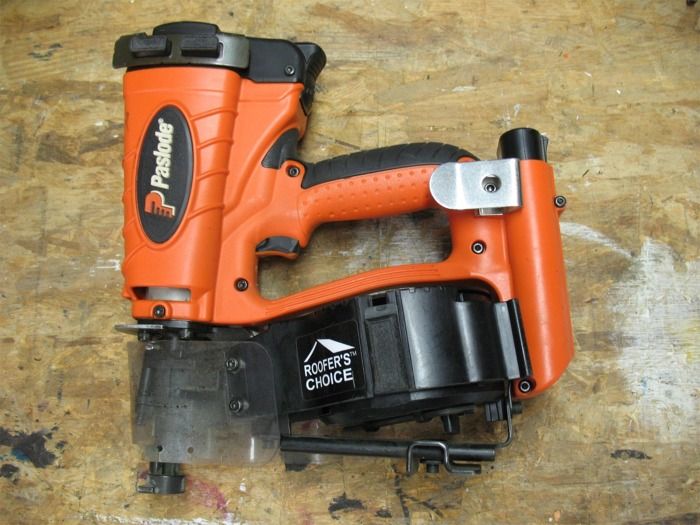
Last fall Paslode introduced the CR175C cordless gas powered roofing nailer. It wasn’t one of those tools that screamed “Gotta have it” when I saw it; but over the past 9 months it’s been handy on roofing projects big and small. The CR175C is not a production tool; it only fires 2 nails per second and you have to plant the nose before firing. But the nailer excels where corded roofing guns hold you back – mainly pick-up work. Think wrapping up along a rake end or a sidewall where most of your time is spent trimming shingles to fit; capping off a ridge; or roofing a small shed. All jobs where an air hose either reduces your mobility and gets in the way, or the time to set up the compressor and hose cuts into production time.

The CR175C operates in a similar fashion to other Paslode cordless tools. A gas cylinder drops into a chamber at the backside of the head and a rechargeable battery sits vertically at the end of the handle. It’s a restrictive sequential fire tool so the nosepiece has to be placed firmly against the shingle before you can pull the trigger and fire. From a best-practices standpoint, the place-and-shoot method is better than bounce-firing because it forces you to position the nose where the nail is supposed to go. Bounce-fire roofing is fast but nail placement suffers as production roofers often nail a little too high along the nail line to avoid driving a nail too low.
It’s heavy for a roofing nailer – 7 ½ lbs. – more than 2 ½ lbs. more than corded models. But compared with the drag a hose puts on regular roofing nailer, the extra weight isn’t that bad. At first I thought the belt hook would be handy but the mass is a little greater than I can handle for more than a moment. The kit comes with a bungee-cord lanyard and carabiner to tether the nailer to your wrist or belt. The rubber bumpers on the head and magazine resisted sliding on slopes up to about 7. Above that, the lanyard is handy to keep the tool from sliding away.
The depth of drive adjustment is an old-school allen screw type- the wrench clips to the bottom of the magazine. I thought I’d be fussing with the adjustment a lot like regular roofing nailers but found that once the drive depth is set for the shingles and roof underlayment, it fires pretty consistently unlike the fluctuations you get with an air nailer.
There’s an adjustable exposure gauge foot on the bottom of the magazine. The broad flat nosepiece is parallel to the exposure gauge so in combination you can count on them for accurate shingle placement.
The Paslode shoots 1 ¼ in. to 1 ¾ in. nails, drives 900 – 1200 nails per fuel canister, and a fully charged battery will last about two fuel canisters. For reference, it takes about 320 nails to lay 1 square of shingles at 4/shingle and 480 nails at 6/shingle.
The tool has shortcomings. Like other gas powered nailers, the CR175C performance diminishes as the temperature drops. Above 50F the tool fires fine. Between 50F and 35F expect some misfires. Below freezing, performance becomes frustrating. Paslode recommends keeping the fuel canisters warm by storing the extras inside your jacket but shortly after dropping a canister into the chamber it cools and firing is hit or miss. My recommendation – leave the tool at home when it’s cold; it’s not worth the trouble.
The nail magazine cover is a molded piece of plastic with an integral catch at the back end that locks it closed. The catch on my tool no longer catches. I don’t know if it’s a systemic problem with all CR175C tools over time or if I squished this one and deformed it. The fix is to heat the end of the magazine cover with a heat gun and bend the catch hook.
You’ll have to clean the innards now and then. Paslode calls for cleaning at 50,000 cycles. That’s in the range of 100 to 150 squares of roofing. It’ll probably take years to reach the 100+ square range the way I’ve put the CR175C to use.
I’ve found it most useful prepping and wrapping up full roof jobs doing tasks like nailing down drip edge and tacking down roof underlayment, nailing flashing, shingling valleys, finishing off courses up to rake edges and sidewalls, fastening ridge vent, and capping ridges and hips. It’s also useful on small jobs like roofing a dormer, retrofitting a skylight, making roof repairs, shingling an addition, and anytime it would take too long to set up a compressor and hose.
Paslode sells nail and fuel canister combo-packs with one fuel cell and 6 coils of premium “PowerBoost” nails (720 total). The street price is about $13 for the combo-pack. Figuring standard name-brand roofing nails sell for $35 per 7200 count; you’re looking at nearly a 4X premium for nails and fuel for the Paslode system. Extra fuel canisters are sold individually for between $10 and $13 each (not much of a bargain considering the combo packs are just slightly more).
The CR175C sells in a kit for between $400 and $600 and includes one battery, charger, backpack, lanyard and a fuel-nail combo-pack. And the Paslode CR175C is identical to the DuoFast DFCR175C.
Fine Homebuilding Recommended Products
Fine Homebuilding receives a commission for items purchased through links on this site, including Amazon Associates and other affiliate advertising programs.

8067 All-Weather Flashing Tape

Handy Heat Gun

Reliable Crimp Connectors
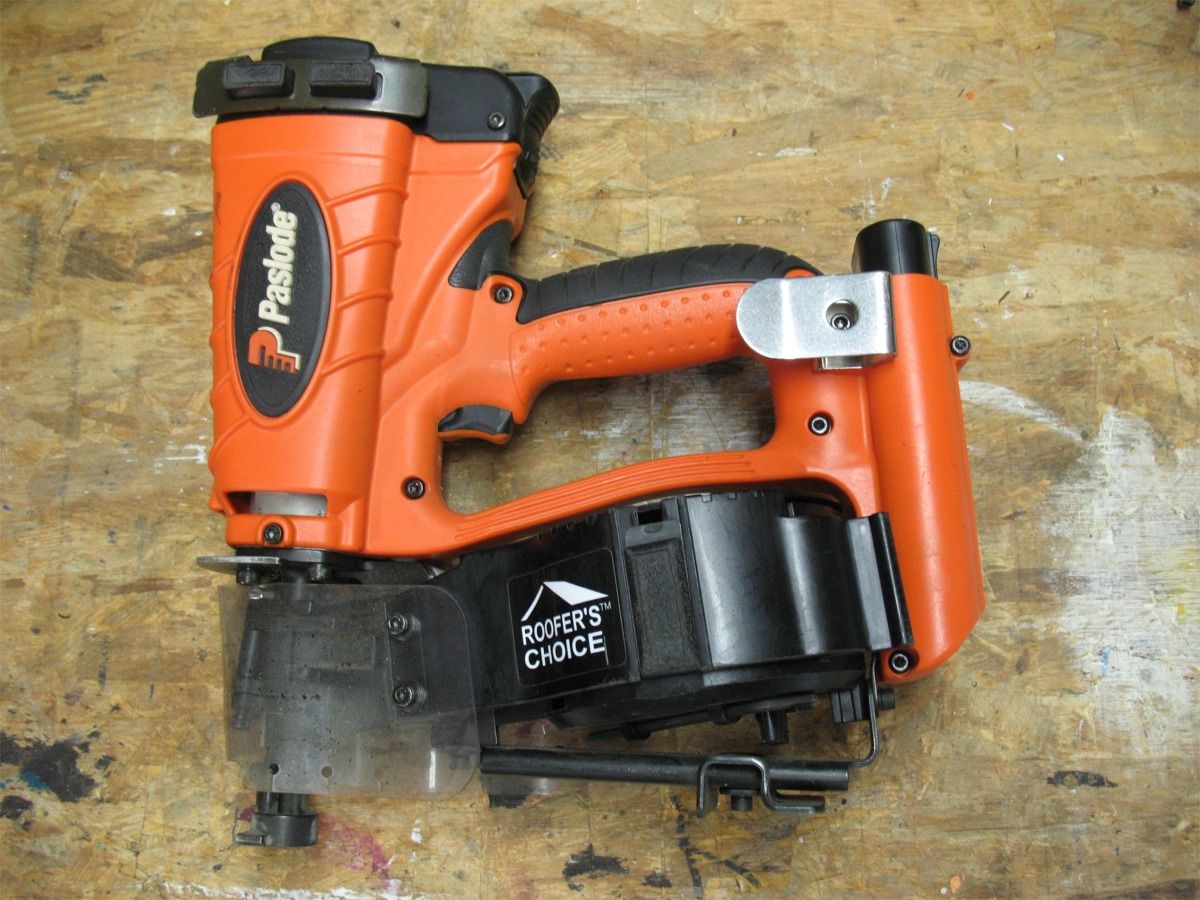
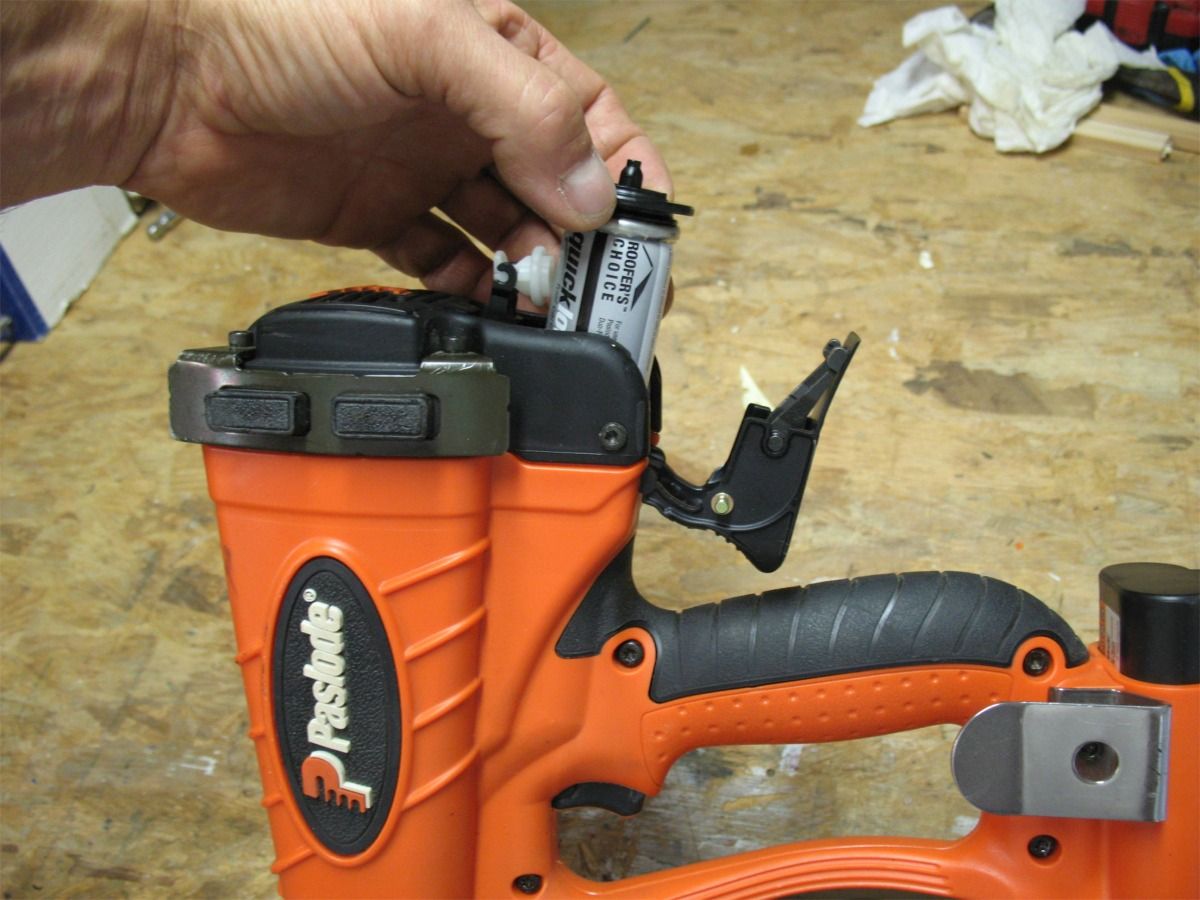
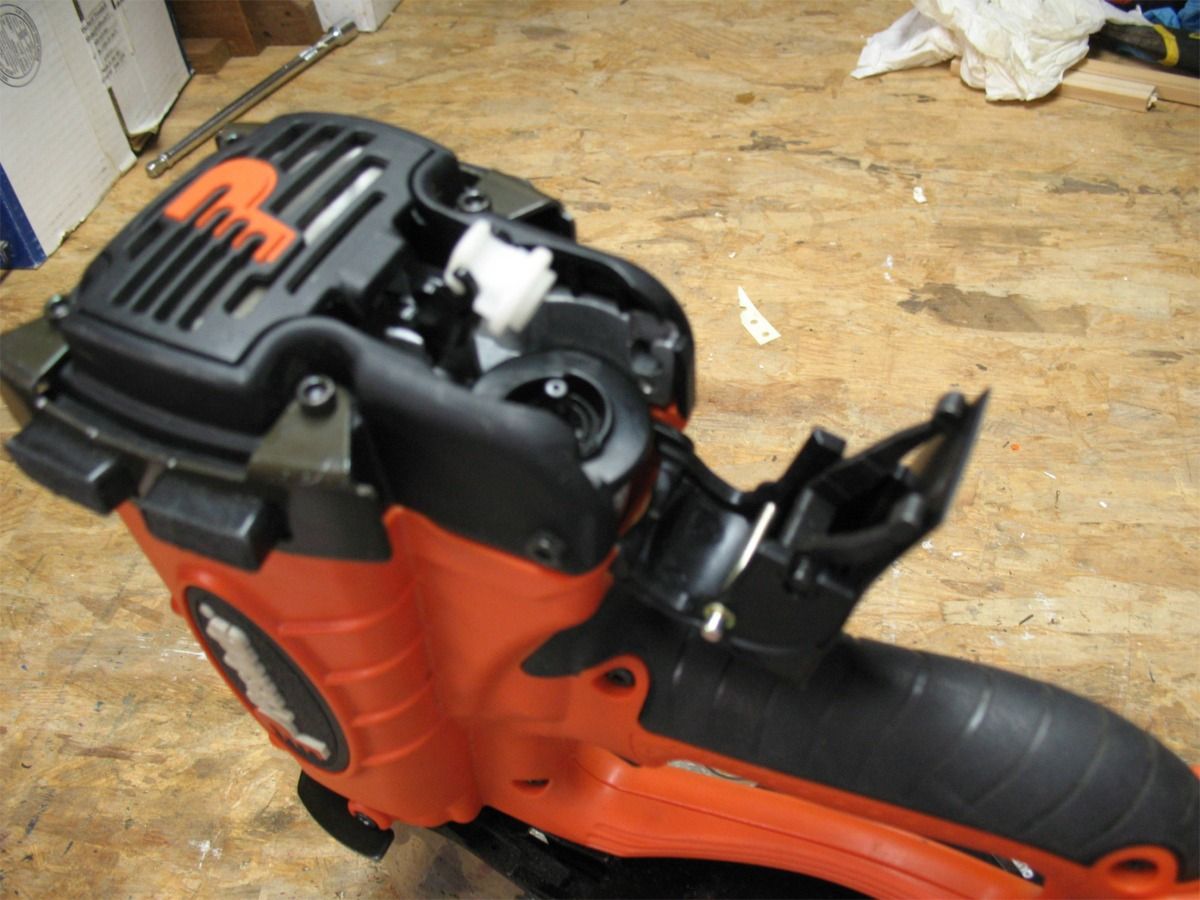
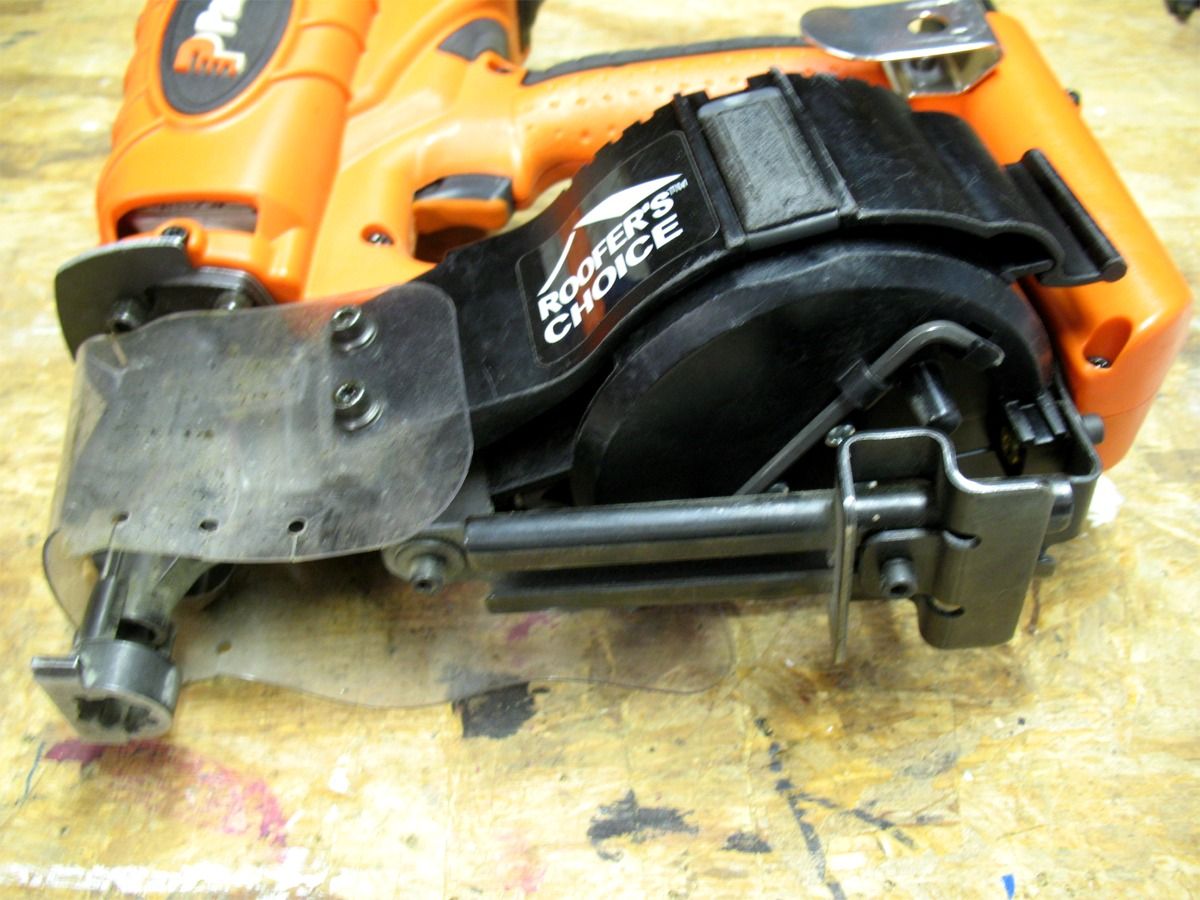
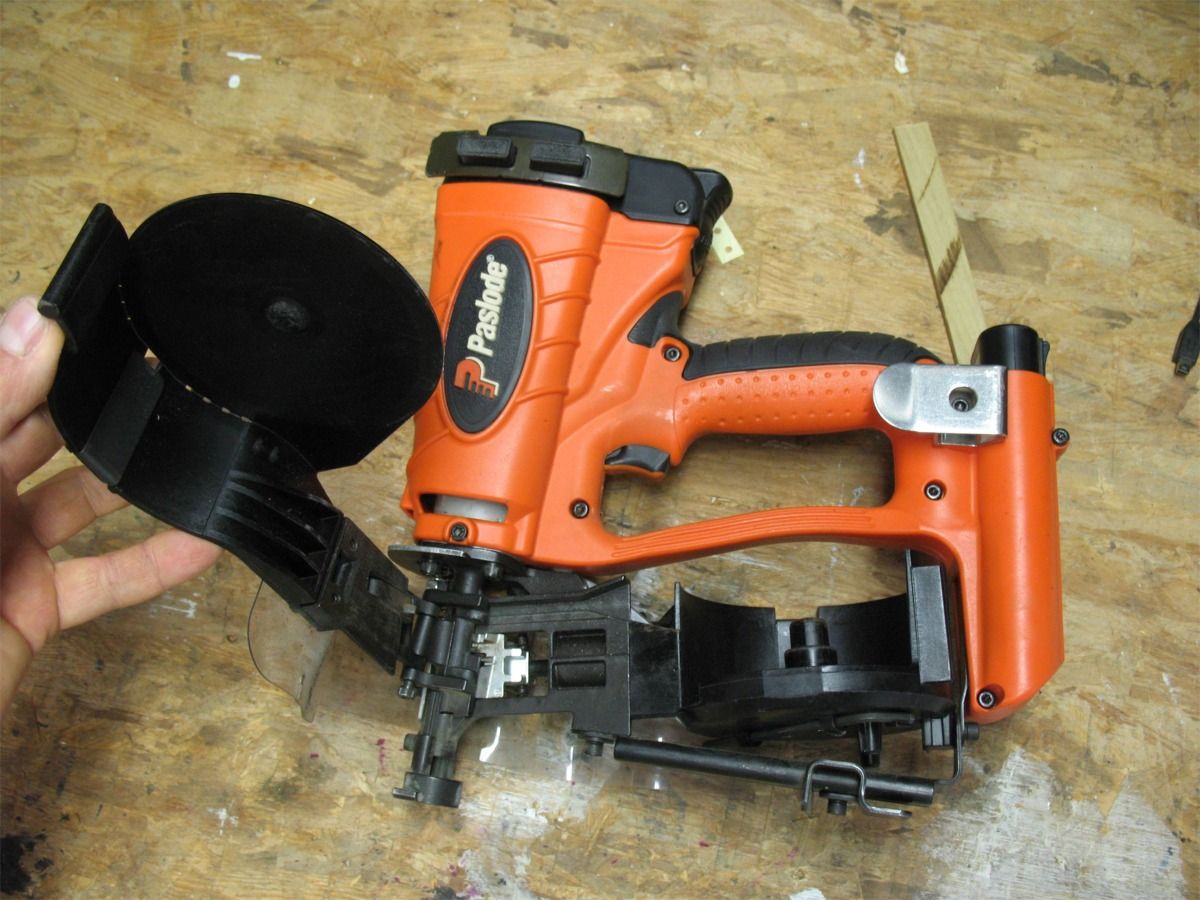
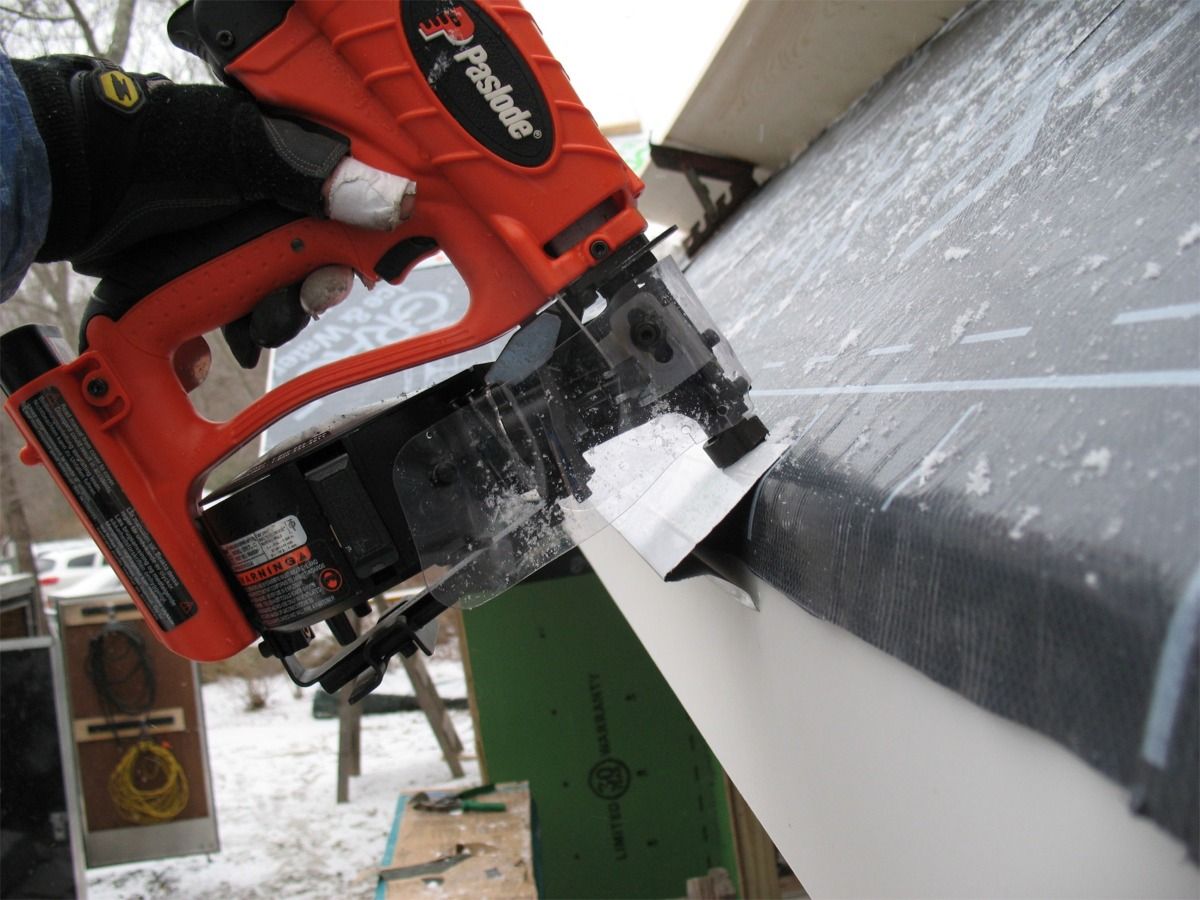




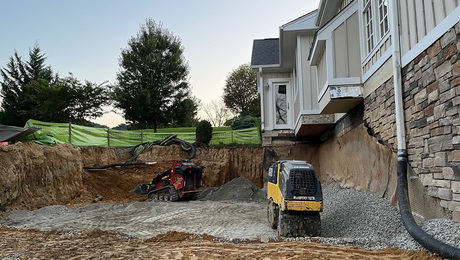





















View Comments
No reviews on this yet? I just saw it in a store in Sydney and I didn't want to get it until someone told me it was worthwhile. I don't think I want to spend half a thousand dollars on something that might just sit in storage…